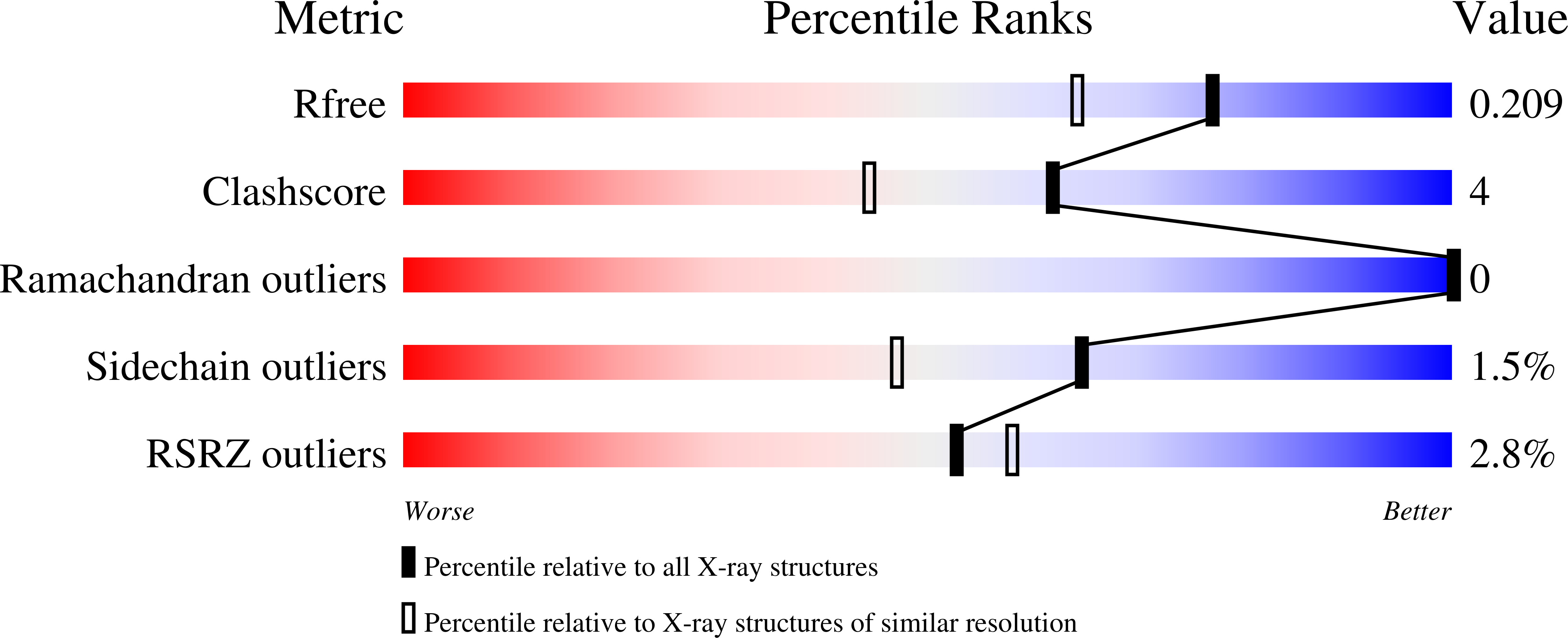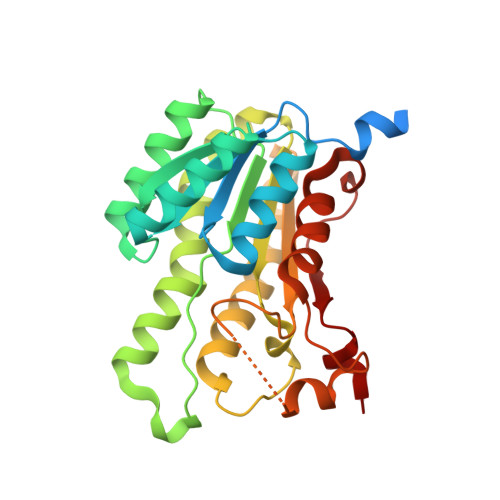Identification of a Noroxomaritidine Reductase with Amaryllidaceae Alkaloid Biosynthesis Related Activities.
Kilgore, M.B., Holland, C.K., Jez, J.M., Kutchan, T.M.(2016) J Biol Chem 291: 16740-16752
- PubMed: 27252378
- DOI: https://doi.org/10.1074/jbc.M116.717827
- Primary Citation of Related Structures:
5FEU, 5FF9, 5FFF - PubMed Abstract:
Amaryllidaceae alkaloids are a large group of plant natural products with over 300 documented structures and diverse biological activities. Several groups of Amaryllidaceae alkaloids including the hemanthamine- and crinine-type alkaloids show promise as anticancer agents. Two reduction reactions are required for the production of these compounds: the reduction of norcraugsodine to norbelladine and the reduction of noroxomaritidine to normaritidine, with the enantiomer of noroxomaritidine dictating whether the derivatives will be the crinine-type or hemanthamine-type. It is also possible for the carbon-carbon double bond of noroxomaritidine to be reduced, forming the precursor for maritinamine or elwesine depending on the enantiomer reduced to an oxomaritinamine product. In this study, a short chain alcohol dehydrogenase/reductase that co-expresses with the previously discovered norbelladine 4'-O-methyltransferase from Narcissus sp. and Galanthus spp. was cloned and expressed in Escherichia coli Biochemical analyses and x-ray crystallography indicates that this protein functions as a noroxomaritidine reductase that forms oxomaritinamine from noroxomaritidine through a carbon-carbon double bond reduction. The enzyme also reduces norcraugsodine to norbelladine with a 400-fold lower specific activity. These studies identify a missing step in the biosynthesis of this pharmacologically important class of plant natural products.
Organizational Affiliation:
From the Donald Danforth Plant Science Center, St. Louis, Missouri 63132 and the Department of Biology, Washington University in St. Louis, St. Louis, Missouri 63130.















